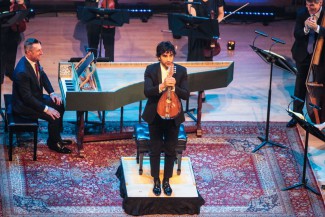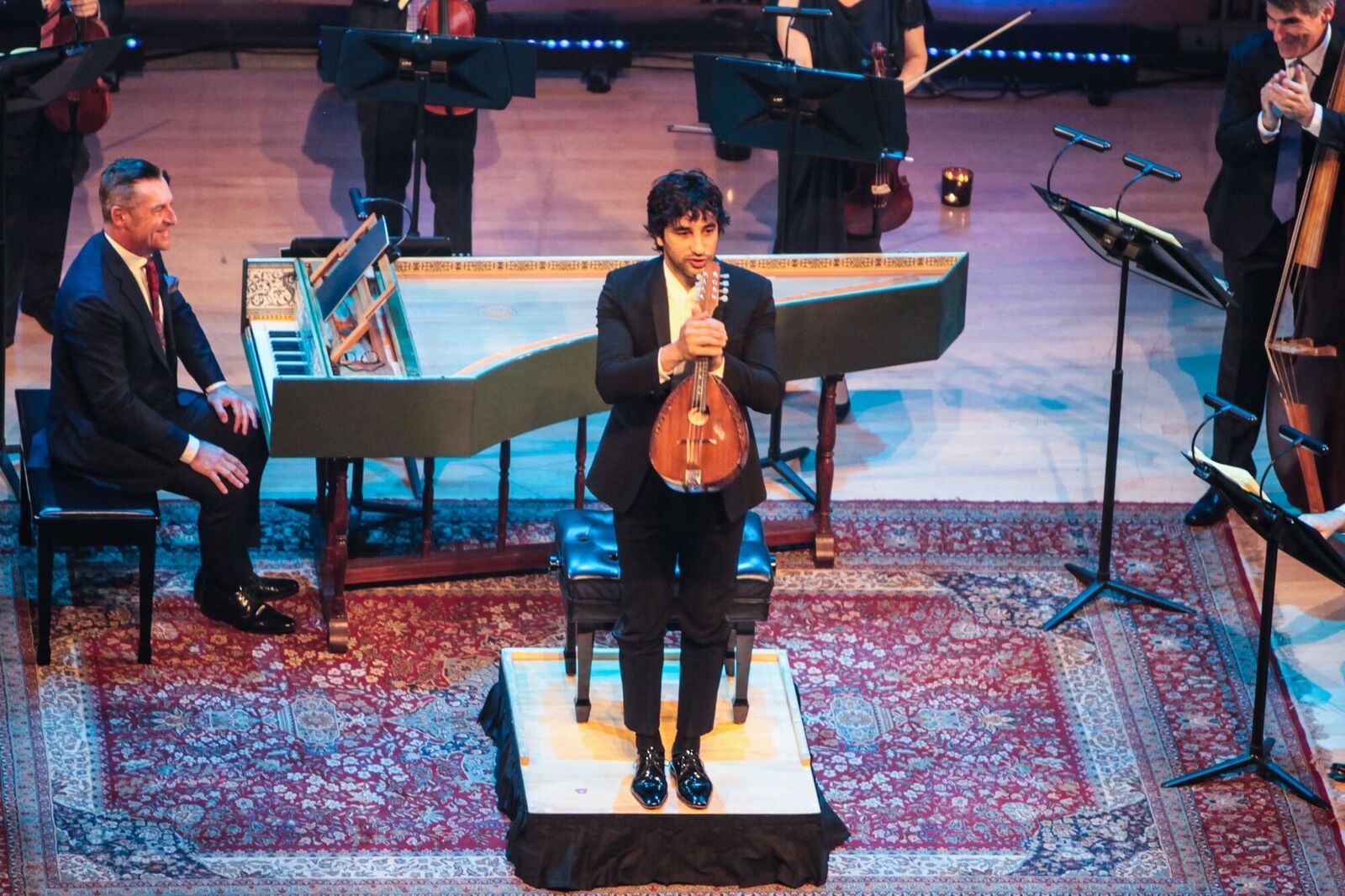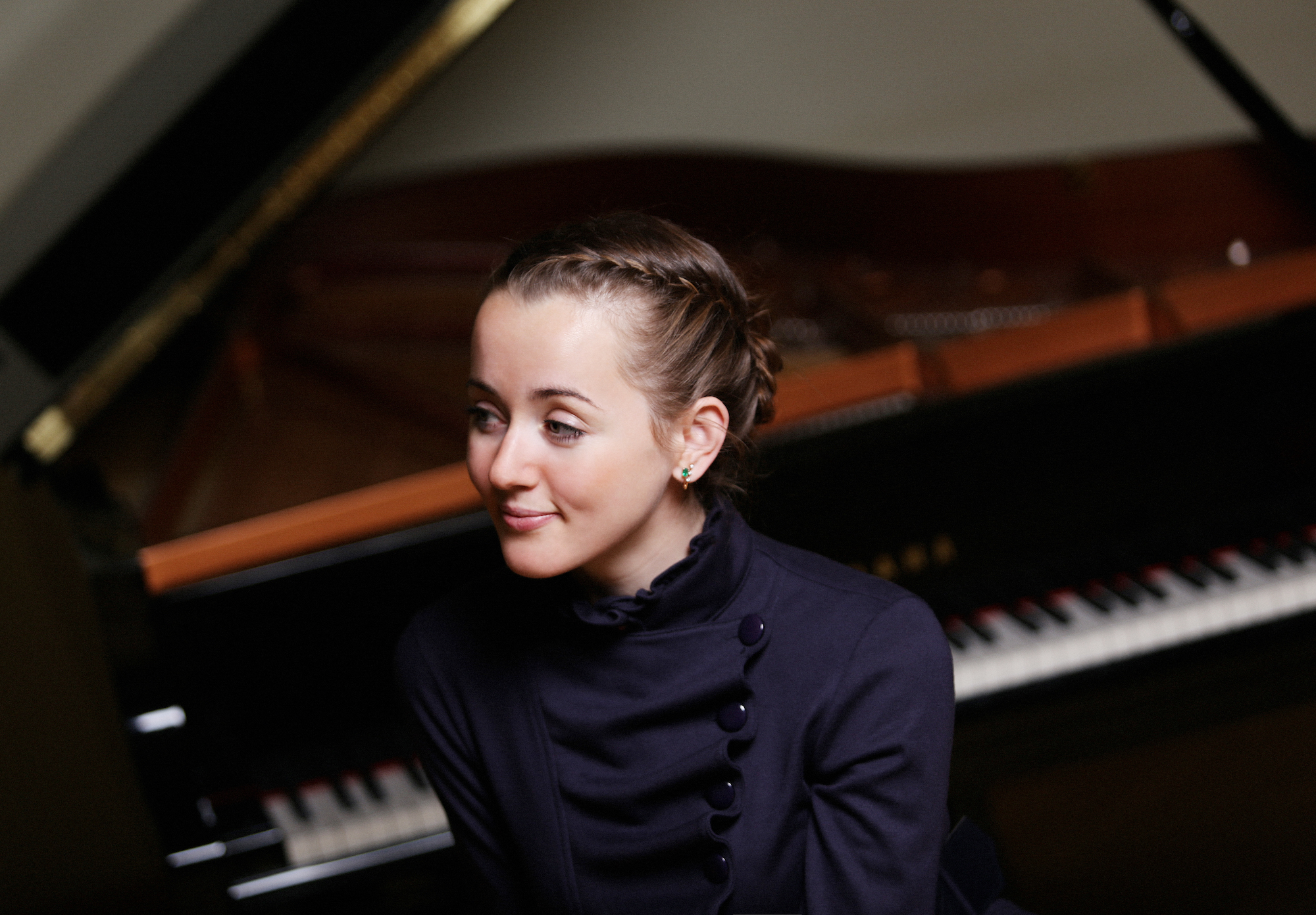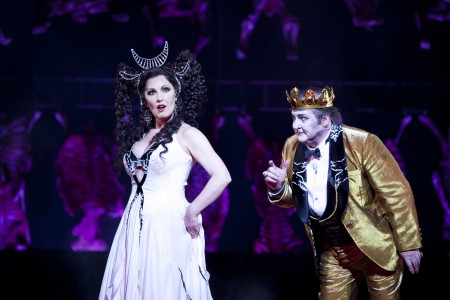Concert Review: Avi Avital and the Australian Brandenburg Orchestra

Australian Brandenburg Orchestra
Avi Avital, mandolin
26 October 2016, City Recital Hall, Angel Place
Written by Larry Turner
Two years ago the Israeli-born mandolin player Avi Avital gave a very successful series of concerts with the Australian Brandenburg Orchestra. Now he has returned to a celebrity welcome from the ABO’s Artistic Director, Paul Dyer, who describes him as a ‘superstar of the mandolin’ who ‘draws forth every nuance, wrings every emotion from each composition….the music carries throughout the concert hall and into the hearts of all who listen’. Expectations were high!
The stage of Sydney’s City Recital Hall was colourfully lit, strewn with candles and with Middle-Eastern lamps suspended above the stage to evoke what Paul Dyer described as ‘a Moroccan lounge room’ – even though most of the music was Italian.
The concert started with an ensemble of nine strings playing Vivaldi’s Concerto for Strings in C major, RV 110 with the ABO’s usual bright sound and characteristic energy. It was an astute decision to use such a small group since it later provided a good balance against the plucked sound of the mandolin.
Avital joined the orchestra to play his mandolin transcription of Vivaldi’s Violin Concerto Op.3 No. 6, RV 356 from L’estro armonico. As the four strings of the mandolin are tuned to the same notes as the violin, the transition from violin to mandolin is relatively straightforward and the result sounded idiomatic and natural. Avital’s playing was excellent and he has a good feeling for baroque style. He is equally comfortable in the dexterity of the fast movements and in the languor of the slow movement. His sound also carried well in the sympathetic acoustics of the City Recital Hall.
The ABO strings followed this with the first four movements of Giuseppe Valentini’s six movement Concerto Grosso Op. 7 no. 11 which provided a very interesting contrast. Although a contemporary of Vivaldi, Valentini lived and worked in Rome and his musical style is quite different from the scales and arpeggios of Vivaldi’s concerti. The second movement, especially, showed the influence of polyphony that is quite foreign to Vivaldi’s concerto style. The fourth movement introduced an intricate virtuoso passage played initially by the solo first violin, taken up in turn by each of the other three solo violins and then by the cello and double bass. It was an opportunity to showcase the depth of talent among the ABO players and to hear individuals in a demanding solo capacity and compare their playing styles.
Ending the first half of the program was the strikingly contrasting Six Miniatures on Georgian Folk Themes by the 20th century Georgian composer Sulkhan Tsintsadze. These short pieces, based on folk music, display the influences of the cultures surrounding Georgia. Their varied nature demanded a greater interpretive and emotional range which included reflective, almost improvisatory folk songs and boisterous dances reminiscent of Greek bouzouki or Russian balalaika music. The mandolin is well suited to such folk music and Avital modified his playing style appropriately. The work also demonstrated the versatility of the ABO in adapting to musical genres that are well outside their normal repertoire.
After interval, Avital played the Mandolin Concerto RV 425 by Vivaldi. This again demonstrated his nimble-fingers, and in the slow movement he projected a legato line even on a plucked instrument. It was followed by a Mandolin Concerto in E flat attributed to Giovanni Paisiello. Although probably not actually by him, it provided a pleasant contrast. A product of two generations after Vivaldi and Valentini the work is in the classical style but with a southern Italian sense of melody and rather more dramatic contrasts than are usually found in classical works from north of the Alps. In the slow movement Avital played a substantial cadenza with passion and agility. Some moments of loose ensemble on the first night will doubtless be tightened up during the run of performances.
The advertised program finished with Avital’s convincing and effective transcription of Summer from Vivaldi’s Four Seasons, RV 315. The performance emphasised the pictorial aspects of the work with flexible tempos and strong, at times percussive contrasts from all players.
Avital gave the enthusiastic audience two encores: firstly, the slow movement from Vivaldi’s Recorder Concerto RV 443 and then an unaccompanied rendition of the Bulgarian folksong Bucimis. This was a dazzling virtuoso performance which justly produced a standing ovation.
The ABO aims to provide multi-dimensional aspects to their concerts. Throughout this performance we were treated to mood lighting which sometimes fully lit the auditorium but which occasionally plunged it into near darkness. This apparently reflected someone’s concept of what we should be feeling as the music progressed. Unfortunately it was at times an unwelcome distraction – especially when the lights started swirling in Vivaldi’s Summer concerto.
The concert performances consistently maintained the ABO’s high standards and there is no doubt that Avital is a master of his chosen instrument. With his charisma and informal image he has great personal appeal. The audience thoroughly enjoyed this engaging program which was enlivened by a rare excursion into Georgian folk music. Further performances are being given in Sydney, Melbourne and Brisbane until 8 November.
Larry Turner for SoundsLikeSydney©
Larry Turner has been reviewing performances for Sounds Like Sydney for several years. A chorister for many years in both Sydney and London, he particularly enjoys opera and music from both the great a capella period and the baroque. He has written programme notes for Sydney Philharmonia, the Intervarsity Choral Festival and the Sydneian Bach Choir .
Check out the images from opening night.







